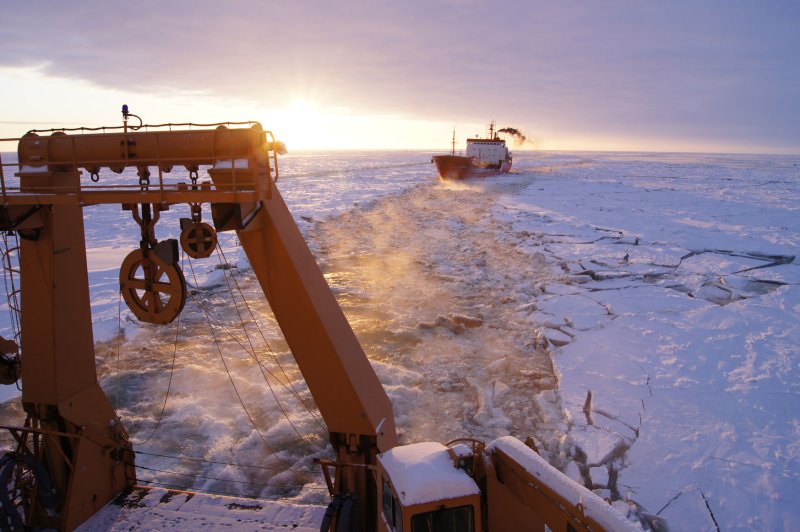The possibility of an oil spill in Arctic waters is a national security concern for parties to the Arctic Council, a U.S. official says. File photo by Benjamin Nocerini/U.S. Coast Guard. |
License Photo
May 9 (UPI) -- Shipping and the possibility of an oil spill in Arctic waters is a security concern for parties to a multilateral monitoring committee, a U.S. official said.
Littoral states to Arctic waters made the first steps toward forming the Arctic Council in the 1990s to address sovereignty, aboriginal rights and security issues. During a conference in Alaska this week, the United States hands the rotating leadership of the council over to Finland.
David Balton, the U.S. deputy assistant secretary for the Bureau of Oceans and International Environmental and Scientific Affairs, said recent problems concerning parties to the council are related to socioeconomic and environmental issues.
"The increase in shipping through the Arctic may lead to some oil spill or other environmental damage," he said in a conference call with reporters. "That's a kind of security issue too, preparing for those types of incidents, and the Arctic Council has been working on things like that as well."
The regional impacts of a warming climate mean parts of the Arctic are ice-free for longer periods of time, freeing up some seasonal shipping lanes. For Russia, a party to the council, that means more oil transports from the Novoportovskoye field above the Arctic Circle.
Pilot projects were completed in 2014 and shipments facilitated by an icebreaking-vessel made it so the company could start delivering oil from the extreme north about a year ago.
Russian oil company Gazprom Neft made its first winter shipment of oil from an Arctic field to the European market in early 2015. Norway, also a party to the agreement, has consented to drilling above the Arctic Circle. Environmentalists have expressed concern about energy work in the extreme north, arguing response would be complex in the frigid climate.
An annual report from the International Chamber of Shipping, published last week, found the reduction in the number of serious oil spills from maritime vessels since the adoption of global protocols in the 1970s has been impressive.
"However, while the goal of the industry is zero accidents and zero pollution, ships will always operate in an environment presenting a high degree of physical risk," the report read. "Although the number of serious pollution incidents that occur today is very low indeed, the possibility remains that occasional oil spills will regrettably continue to occur."
Balton made no further mention of oil pollution or other energy work. The White House under President Donald Trump has moved to erase some of the bans on drilling operations in Arctic waters.















